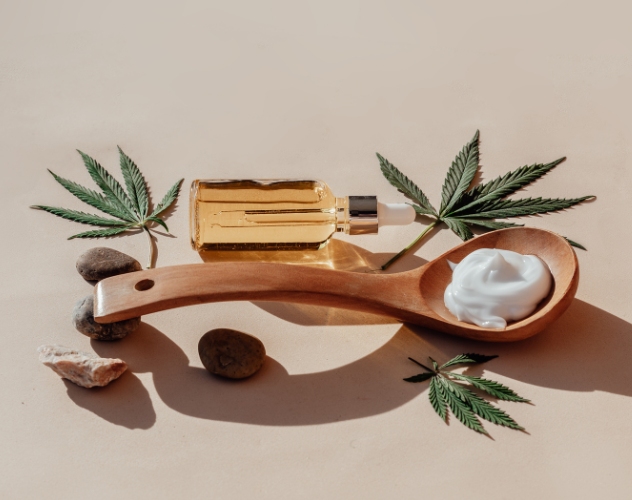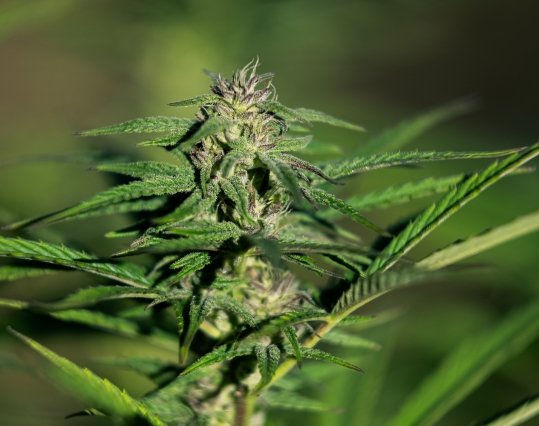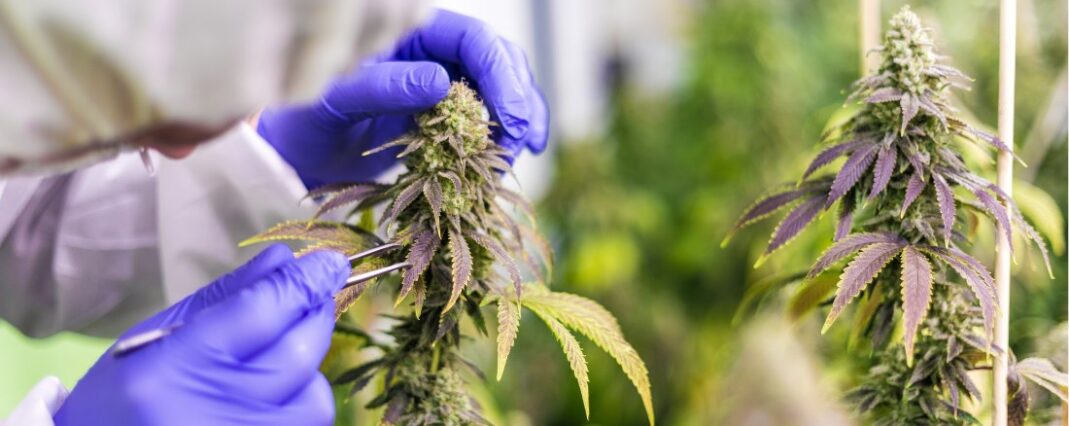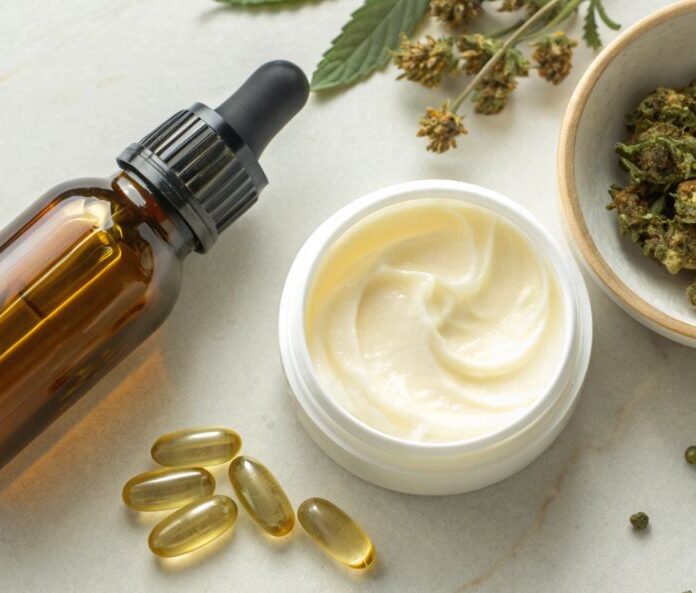Sustainability is reshaping industries worldwide, and the CBD sector is no exception. Hemp-derived products contribute to eco-friendly practices and align with consumers’ interest in wellness and sustainability, especially when produced using sustainable methods.
This guide explores what sustainable CBD means, the environmental benefits of hemp, and why choosing sustainable CBD products is an essential step towards a more sustainable future.
At The CBD Flower Shop, we are proud to offer premium CBD flowers cultivated using sustainable and organic, non-GMO farming techniques.
What is sustainable CBD?
Sustainable CBD refers to CBD products made using environmentally friendly methods at every stage, from hemp cultivation through to CBD production, packaging, and distribution. Sustainable practices include organic farming methods, ethical sourcing, energy-efficient extraction techniques, and eco-friendly packaging.
Unlike mass production, which can harm the environment, sustainable CBD production prioritises soil health, biodiversity, and reduced waste. Brands committed to CBD sustainability seek to lower the environmental footprint of their operations and offer products that contribute positively to local communities and global efforts to combat climate change.
Sustainable CBD can cover a wide range of products, from minimally processed CBD flowers to CBD oil, tinctures, and topicals, produced with a commitment to environmentally friendly standards.
The environmental benefits of hemp

The environmental benefits of hemp
Water conservation
Hemp cultivation requires far less water than traditional crops such as cotton. Hemp cultivation methods support better water conservation of vital natural resources, making the hemp plant a sustainable choice in regions where water scarcity is an increasing concern.
Reduced chemical dependency
The hemp plant is naturally resistant to pests and diseases, which means it can be grown successfully without the heavy use of synthetic pesticides or herbicides. This helps maintain soil health, protects nearby ecosystems, and prevents harmful chemical runoff into rivers and groundwater.
Soil health and regeneration
Hemp’s deep roots help prevent soil erosion, increase soil organic matter, and improve soil structure, enhancing resilience against drought. With these environmental benefits, hemp is increasingly recognised as a valuable crop in regenerative agriculture, supporting soil restoration and more sustainable farming practices.
Through a process known as phytoremediation, hemp can also remove toxins and heavy metals from contaminated soils, making it a powerful tool for restoring damaged environments and improving long-term soil health.
Carbon capture and climate benefits
Hemp is a highly effective plant for capturing carbon dioxide from the atmosphere. Research suggests that hemp cultivation can absorb between 10 and 15 tonnes of carbon dioxide per hectare during a single growing season, depending on growing conditions. This remarkable ability makes hemp farming a valuable tool in efforts to combat climate change.
By choosing CBD products made from sustainably grown hemp, consumers help support agricultural practices that reduce global carbon emissions and contribute to a healthier, more sustainable future.
Waste reduction and versatility
One of the most impressive environmental benefits of hemp is that almost every part of the plant can be used. From CBD production to textiles, bioplastics, food products, and construction materials like hempcrete, hemp contributes to reducing agricultural waste and supporting a circular economy.
By offering sustainable alternatives to environmentally damaging materials like fossil-fuel based plastics and concrete, hemp is helping to drive positive change across multiple industries and lower the overall environmental impact of production.
Important sustainability considerations
While the hemp plant has natural environmental advantages, true sustainability depends on responsible farming and production methods.
Farming practices matter
Although hemp cultivation generally reduces the need for pesticides and synthetic fertilisers, poor farming practices such as monocropping or heavy mechanisation can undermine these environmental benefits. Only through organic farming practices and regenerative agriculture techniques can the full potential of hemp be realised to improve biodiversity, prevent erosion, and enhance soil health.

Location matters
Although hemp uses less water than many traditional crops, irrigation may still be needed in arid regions. Sustainable hemp cultivation must be adapted to local environmental conditions to maximise water conservation, ensuring that farming practices do not put additional stress on limited water resources.
Processing and packaging impacts
Sustainability also depends on the methods used to extract CBD from hemp. Eco-friendly methods such as CO2 extraction are preferred, as they are solvent-free and energy-efficient. Packaging choices are also important; using biodegradable packaging, reusable options, and recycled materials helps to reduce waste.
Eco-friendly practices in CBD cultivation and production
Sustainable CBD begins at the seed stage, with organic hemp seeds planted in healthy soil without synthetic chemicals. As the hemp plants grow, farmers following sustainable practices encourage natural biodiversity, conserve water, and promote long-term soil regeneration.
At harvest time, minimal mechanical intervention helps preserve soil structure and reduce carbon emissions. After harvesting, natural drying and curing methods are typically used to preserve the natural profile of cannabinoids and terpenes in the hemp flower.
For products like CBD oil, sustainable brands prioritise environmentally friendly extraction methods such as CO2 extraction, which minimises the use of harmful solvents and is more energy-efficient than traditional techniques. Packaging choices are also important, with a preference for biodegradable, recyclable, or reusable options.
Why choosing sustainable CBD matters
Cleaner, more natural products
CBD flowers and oils made from organic hemp are free from synthetic pesticides and harmful chemicals, offering a cleaner, more natural choice for consumers prioritising purity and quality.
Lower environmental impact
Supporting CBD brands that prioritise sustainability helps reduce environmental harm. Sustainable hemp cultivation protects soil health, conserves water, promotes biodiversity, and helps lower carbon emissions – all crucial to combating climate change.
Social and economic responsibility
Sustainable CBD production also strengthens local communities by encouraging ethical sourcing and fair labour practices. This broader positive impact extends beyond farms to improve the social and economic foundations of the supply chain.
Driving industry innovation
As more consumers demand sustainable choices, CBD companies invest in better farming methods, eco-friendly packaging, waste reduction, and greater transparency through third-party lab testing. This collective shift is helping to build a more ethical, environmentally conscious CBD industry for the future.
Buy premium CBD flowers today
At The CBD Flower Shop, our high-quality CBD flowers are cultivated using sustainable, organic farming practices that help protect the environment and ensure exceptional quality.
Explore our wide range of products at competitive prices, with fast, reliable delivery options. If you have any questions, our friendly team is ready to help – don’t hesitate to get in touch.


